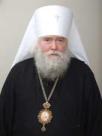Thursday, August 21, 2014
From the Philokalia on FASTING
Suppose you have ordered yourself not to eat fish: you will find that the enemy continually makes you long to eat it. You are filled with an uncontrollable desire for the thing that is forbidden. In this way you can see how Adam’s fall typifies what happens to all of us. Because he was told not to eat from a particular tree, he felt irresistibly attracted to the one thing that was forbidden for him.
St John of Karpathos (7th century)
Those pursuing the spiritual way should train themselves to hate all uncontrolled desires until this hatred becomes habitual. With regard to self-control in eating, we must never feel loathing for any kind of food, for to do so is abominable and utterly demonic. It is emphatically not because any kind of food is bad in itself that we refrain from it. But by not eating too much or too richly we can to some extent keep in check the excitable parts of our body. In addition we can give to the poor what remains over, for this is the mark of sincere love.
Fasting, while of value in itself, is not something to boast of in front of God, for it is simply a tool for training those who desire self-restraint. The ascetic should not feel proud because he fasts; but with faith in God he should think only of reaching his goal. For no artist ever boasts that his accomplishment is simply due to his tools; but he waits for the work itself to give proof of his skill.
St Didachos of Photiki (5th century)





